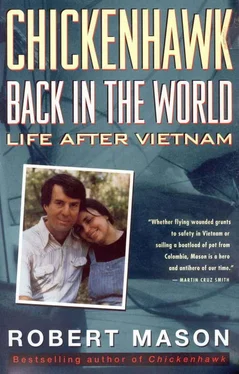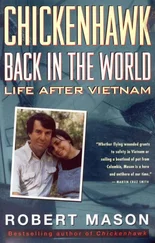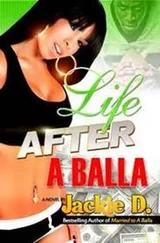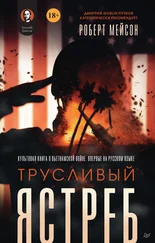“That’s right, Bob,” Pete said. “This is a fucking major event for them. This is payday. There’ll be big parties all night tonight, my friend.”
“This is what they do? I mean, all that they do?”
“You got it. Keeping marijuana illegal in the States is the best thing that ever happened to these people. Life’s never been better. They got refrigerators now, TVs, cars, trucks—putting money aside for the kids’ educations. They’re even buying up the land they used to work for the rich dudes who’ve been keeping them in poverty for the last couple of centuries. Tell the folks back home to smoke mo’ pot.” We laughed. The canoe came alongside and I went forward to help. John looked below and yelled to the Indians in Spanish to pack the stuff neater, it was taking up too much space. His Spanish sounded perfect. John and the head Indian jabbered about how to pack it so we could stuff more pot on board. We were going to take on as many bales as we could squeeze into every compartment except the galley. John told Pete we might be able to pack four thousand pounds into the Namaste , but it’d be tight. The Namaste could carry twice that weight, but marijuana, even compressed in bales, is bulky stuff and volume was the limiting factor.
Bob and I helped the Indians wrestle the bales to the forward hatch. Everybody was having fun. Much kidding, laughing, singing. During the next lull between canoes, I went back to the cockpit.
“John says you take care of the Colombian navy. How do—”
“I don’t do shit. Bob.” Pete struck a match to light a cigarette. I could see him in the light. His face was lean, smooth, friendly. He had close-cropped hair. He looked like a college kid working on his master’s degree in English. “Not a thing. These fuckers do it.” He swept his arm toward shore. “Their navy, any navy, has one critical link in its organization. The sailors. Most Colombian sailors are conscripts who come from villages just like this one. These guys just cut them in—pay ’em about what they’d make in a whole year, just to keep the navy out of our way for one night. Never see the Colombian navy during the pickups.”
“How they do that?” I said.
“Easy. The sailors are the dingers that do the work, right? They keep the engines running—or not running. The engines don’t work when they don’t want them to. Sugar accidentally falls into gas tanks, stuff like that. They’re very resourceful.” Pete laughed. “The only other people they have to buy are the local cops. One of them is on shore right now, working for a little extra pay. These guys and the cop will make a hundred bucks apiece tonight just for an hour’s work.”
“There’s a cop on shore right now, watching this?” I said.
“Yep. Fredrico. Wife has a baby on the way; needs the cash.”
“They don’t talk?”
“Nope. Shit, Bob. Like I said, this is the best thing that’s ever happened to these people. They can’t believe we pay serious money for stuff that just pops out of the ground. They smoke pot, too, but it’s just a fun weed to them; grows wild, always been free. They say, ‘What the hell. Crazy gringos pay mucho dinero for these weeds, who are we to argue?’”
An hour later, the Namaste was filled from the bow compartment back to the galley, four and five feet deep. The only place we could stand below decks was in the ten square feet next to the stove and navigation counter. The bunks were buried under mounds of variously sized and crookedly packed bales of pot. There was only two feet of crawl space between the cargo and the top of the cabin.
Ireland and I hooked the safety line back up and went back to the cockpit with John and Pete.
John had given Pete the package of money and he was counting it as Ireland and I swung around the dodger. The canoes were all back on shore, and I wondered how Pete was going to get back.
“They’re sending a canoe out in a few minutes. They got some stuff for you guys—jugs of fuel, a whole bunch of fresh fruit and vegetables, canned food, stuff like that,” he said.
Pete finished counting the money and stuffed it into a canvas knapsack slung from his shoulder. He said to John, “Well, too bad you didn’t get a bigger boat, Ace. We have plenty more.”
John nodded and looked at the tally sheet. “Yeah,” he said. “Thirty-five hundred pounds. Shit, this barge could carry five thousand if we could fit it in, no problem.”
I saw a canoe drifting out on a cloud of light from the dark shore. When the Indians pulled up alongside, they began handing us five-gallon, basket-wrapped, corked glass jugs of diesel fuel, bunches of bananas, and cardboard boxes of canned food and fresh fruit. When the canoe had been emptied, Pete jumped in. He said “Have a safe trip” and waved. He sat down in the canoe and we watched him being paddled away. His mission was over; he was home safe. Ours was just beginning.
“Okay, guys,” John said. “Let’s boogie!”
We cranked up the engine, hauled anchor, and were under way in five minutes.
At midnight we were under sail and clear of the Guaijira Peninsula, out of the glittery water. Apparently the area just off the coast of the peninsula is one of the few places in the world that sees such bright displays of phosphorescent excitement.
We were all awake, sitting under the dodger. The adrenaline rush was still with us and nobody wanted to sleep. It felt like we were in the process of making a speedy getaway. We knew we had two thousand miles to go, but that hadn’t sunk in yet.
When we were out of sight of land, John said we should smoke some of the product to see how good it was. Ireland and I cut into a bale and yanked out a handful of the compressed weed. The whole boat reeked of the pungent, stale smell of the stuff. We rolled a joint and smoked it.
“Tastes a little stale, John,” Ireland said. John nodded and held a pinch up to his nose. “We gotta make sure this stuff stays dry. Stale pot doesn’t get much money.”
I sucked down a lungful, held it, and let it out. It wasn’t very strong stuff.
“What d’you think?” John asked.
“It’s not the kind of stuff I’d buy,” I said. “Smokes like New York street weed. Nothing like home-grown.”
“Good. That’s fine. That’s where this stuff is going. What do they know of home-grown in Brooklyn?”
I looked down the hatch at the wall of pot. “What’s all this worth? I mean, back in the States.”
“Right now we’re getting about three-forty a pound, wholesale. What’s that? Thirty-five hundred times three-forty—little over a million bucks?”
I shook my head and laughed. This was about as artificial an economy as I could imagine. The scammers buy bales of compressed weeds in Colombia where they give it little value and now they figure it’s worth a million dollars? Free enterprise.
“It’s ridiculous, isn’t it?” I said. “This stuff is basically worthless. I mean, yeah, it’s hemp, maybe worth, what? A hundred dollars as rope-making material? A million dollars to you guys? It’s obscene.”
“Hey,” John said. “Who are you to question world economics?” He laughed. “Supply and demand is the name of the game; and the government sets the prices. Life couldn’t be better.”
“Man,” Bob said. “They should just legalize the stuff.”
“Wash your mouth out, Ramon. They legalize this stuff and a whole economic sector is put out on the street. I mean, what happens to the importers and all their employees? What happens to those poor villagers? And what about us hardworking smugglers?” John laughed. “Let’s see, now; if it was legal, priced what it’s worth, your share of the deal would come to about two bucks.”
Ireland laughed. “Two bucks? Elephant wages!”
Читать дальше












